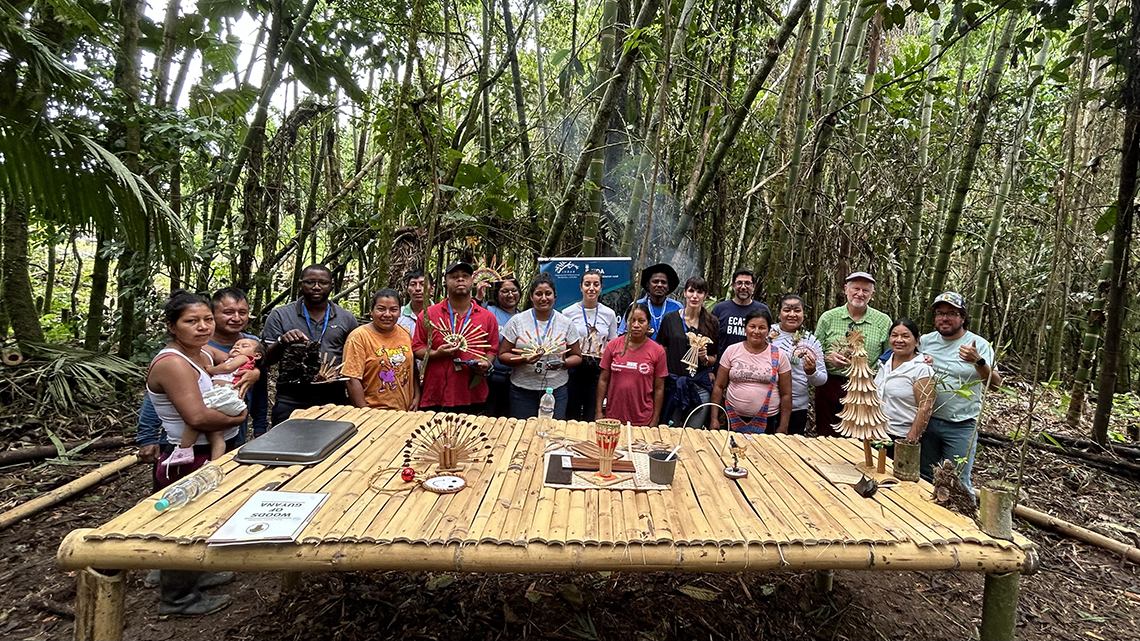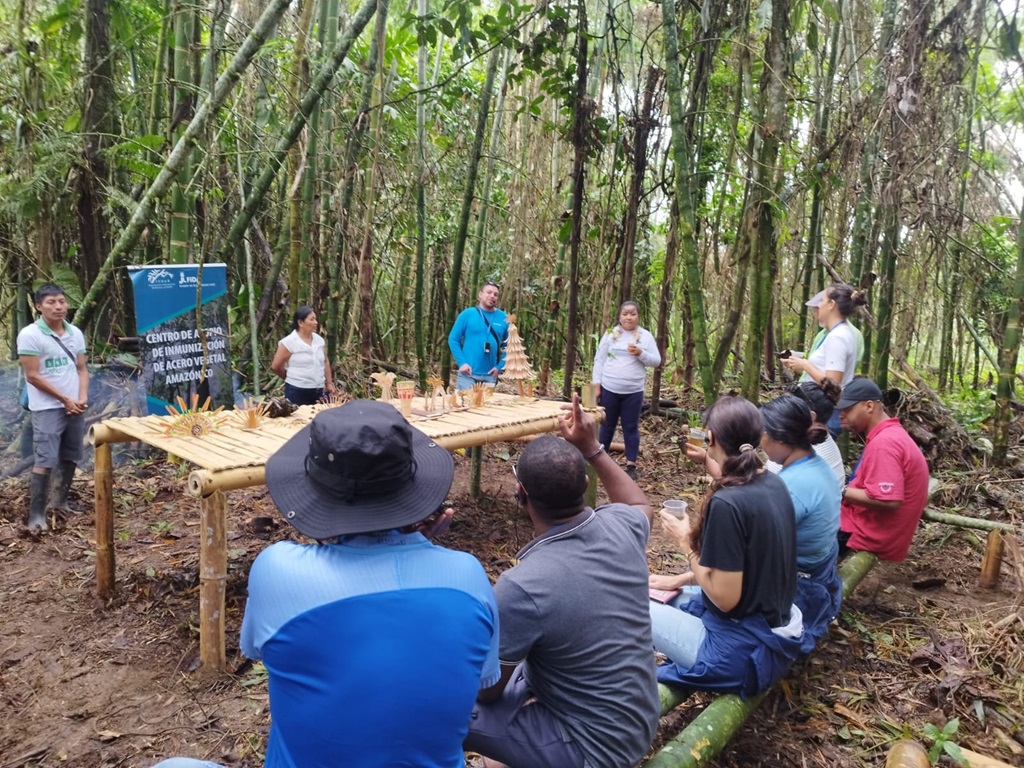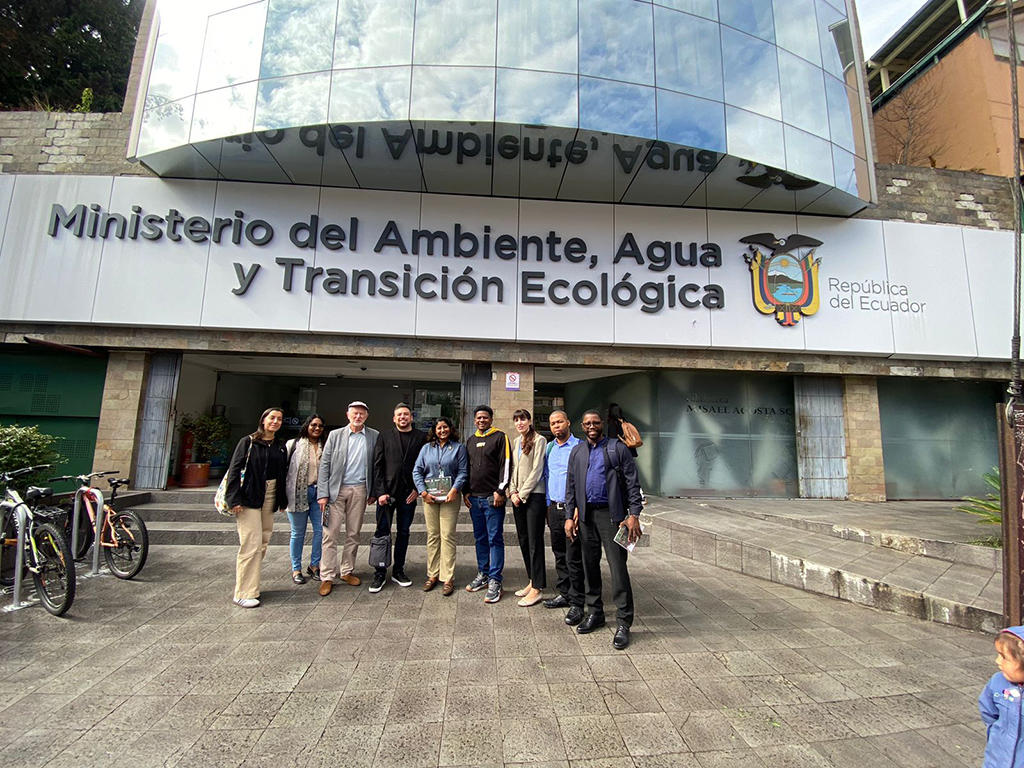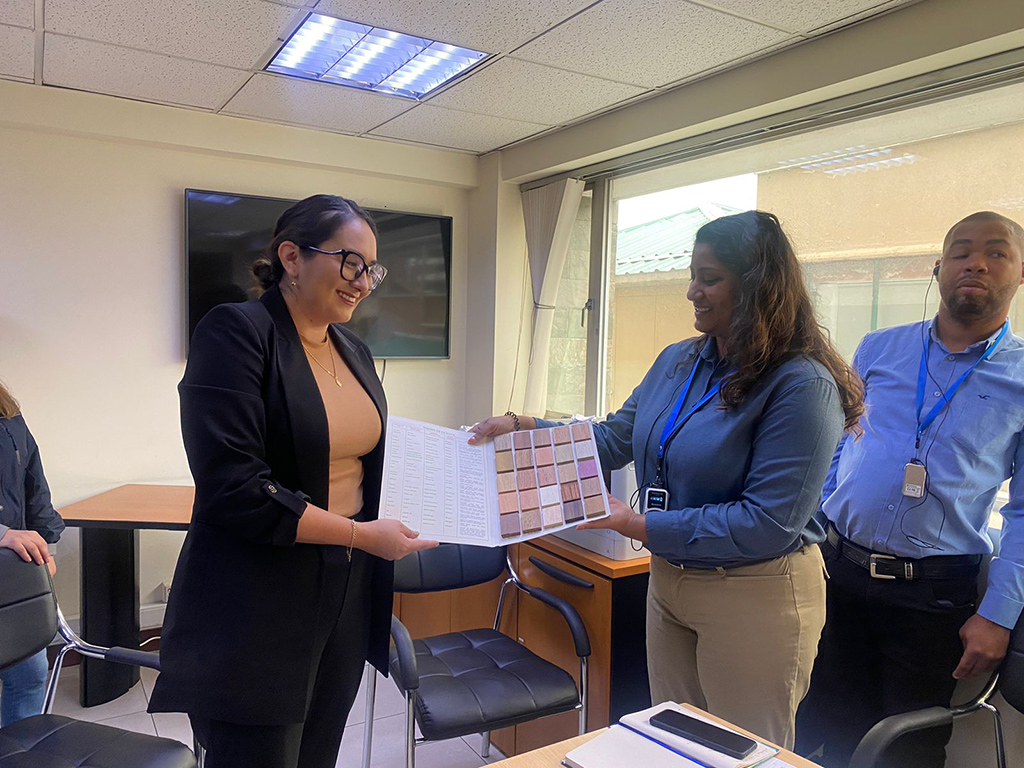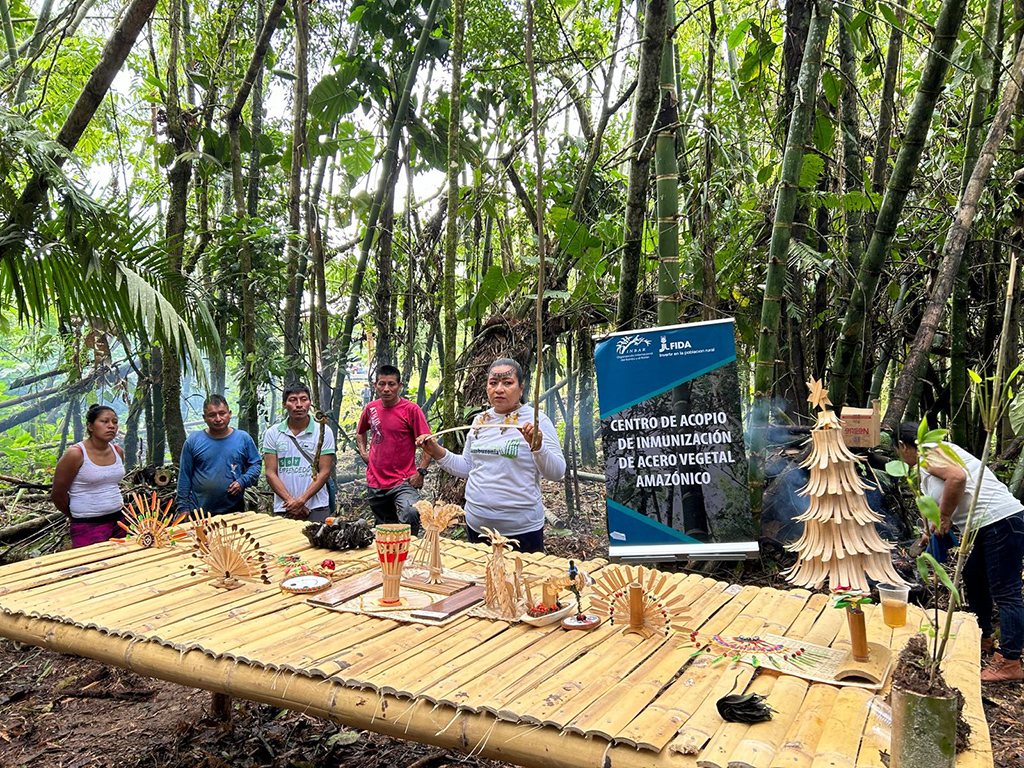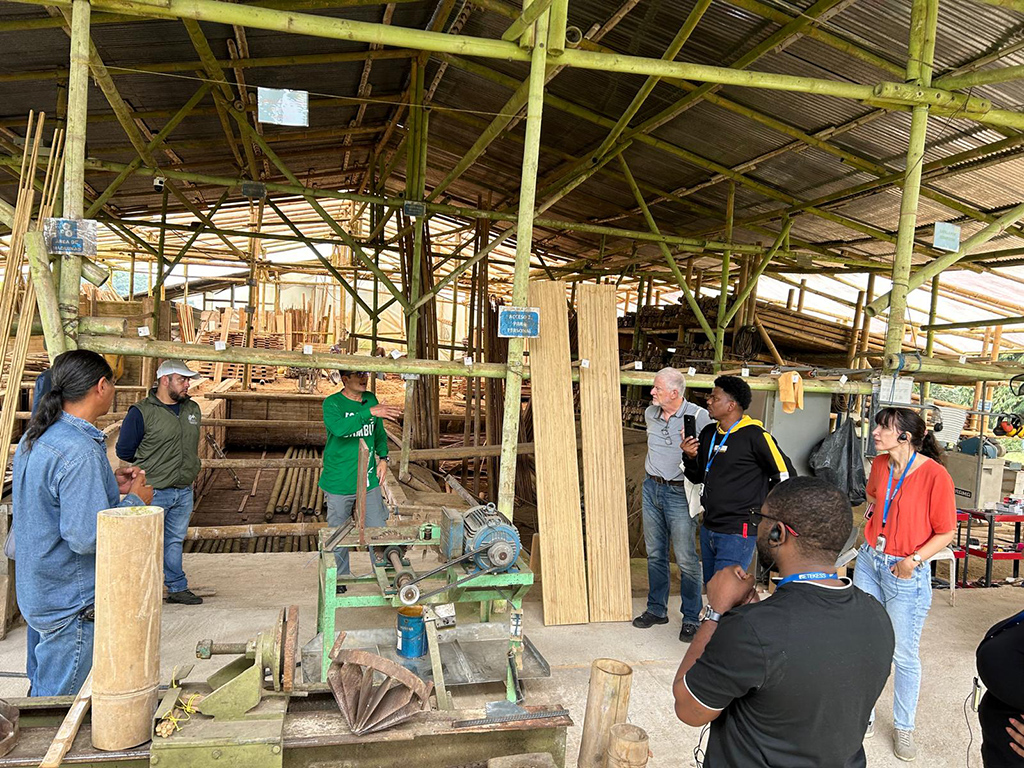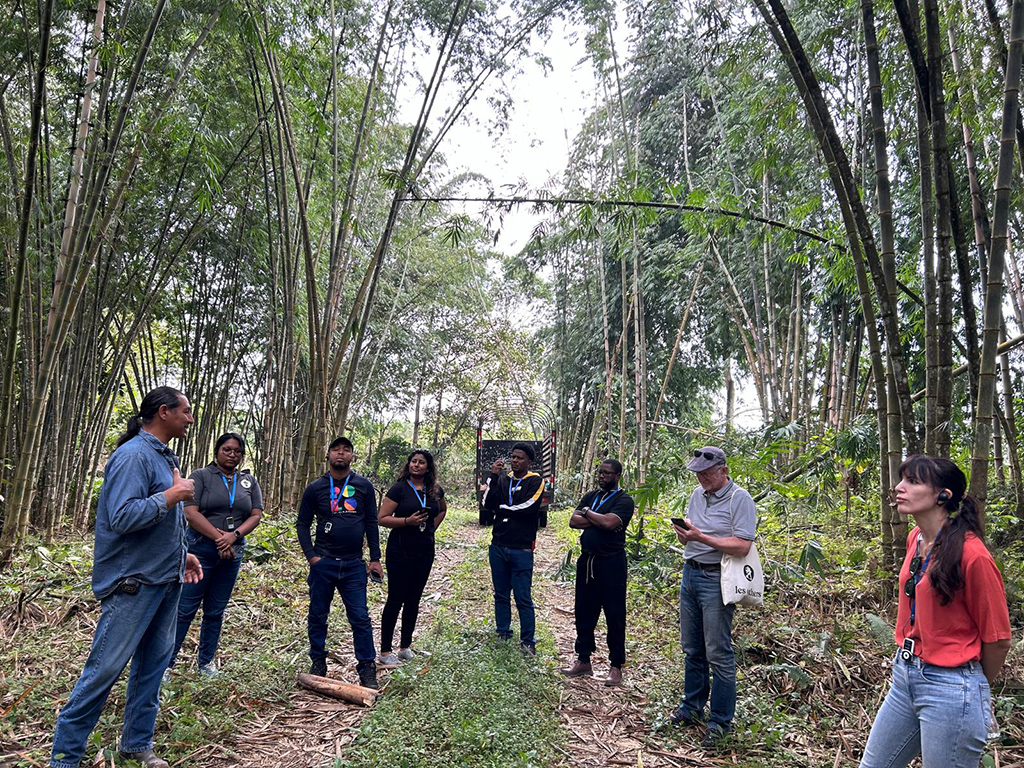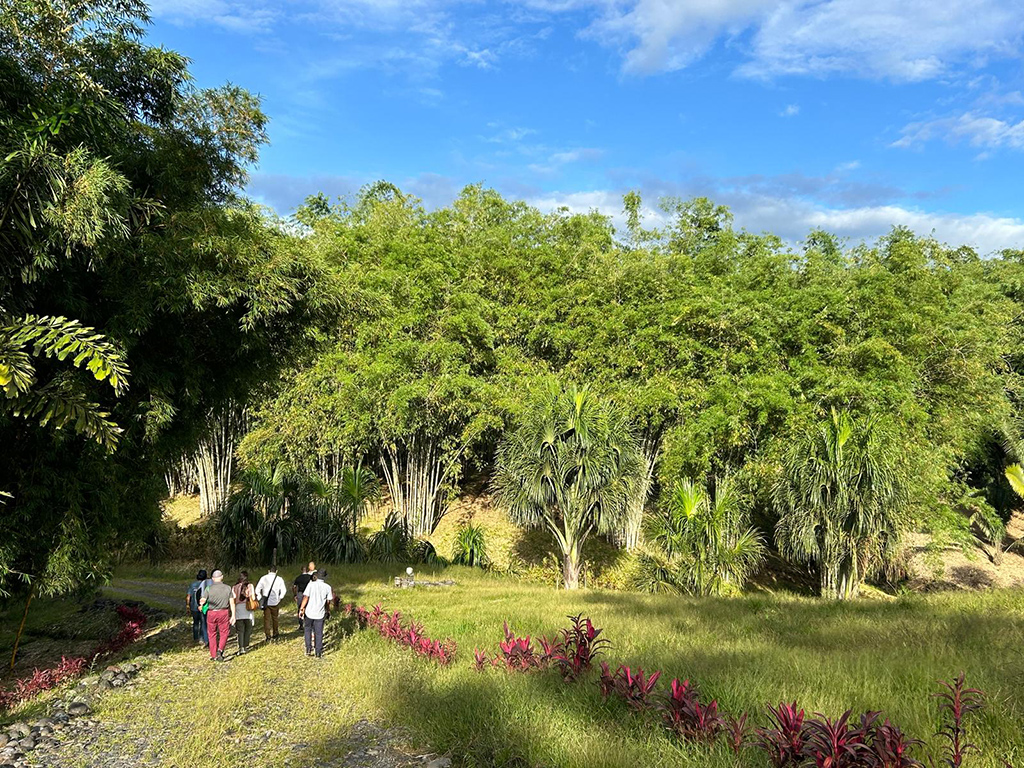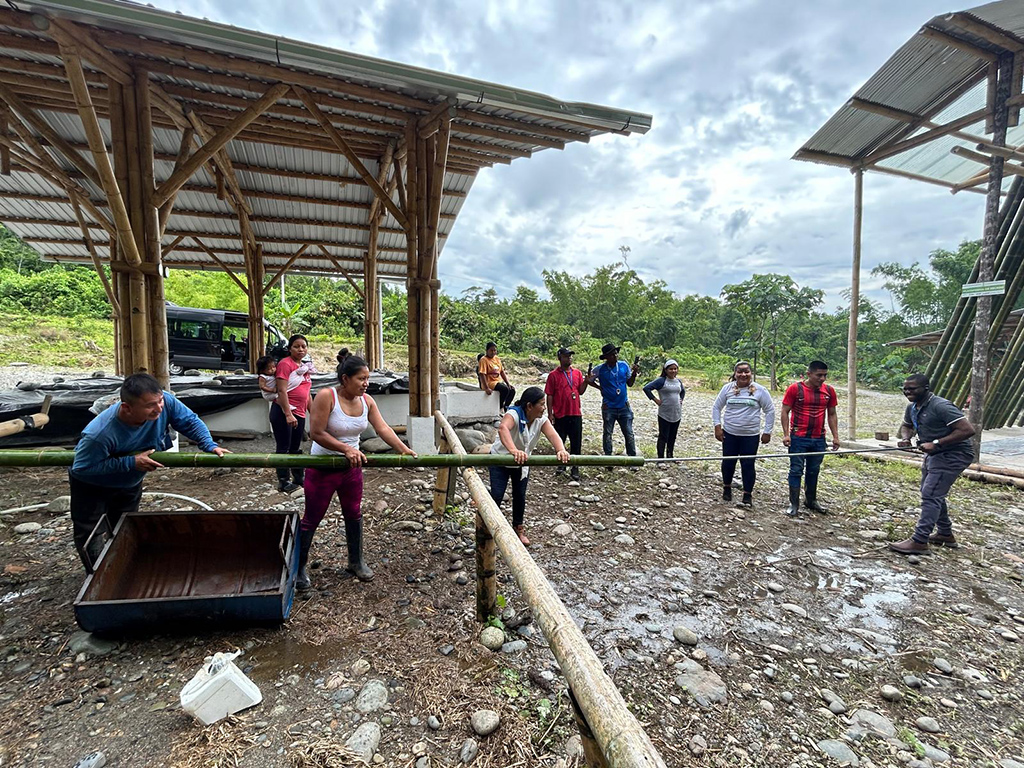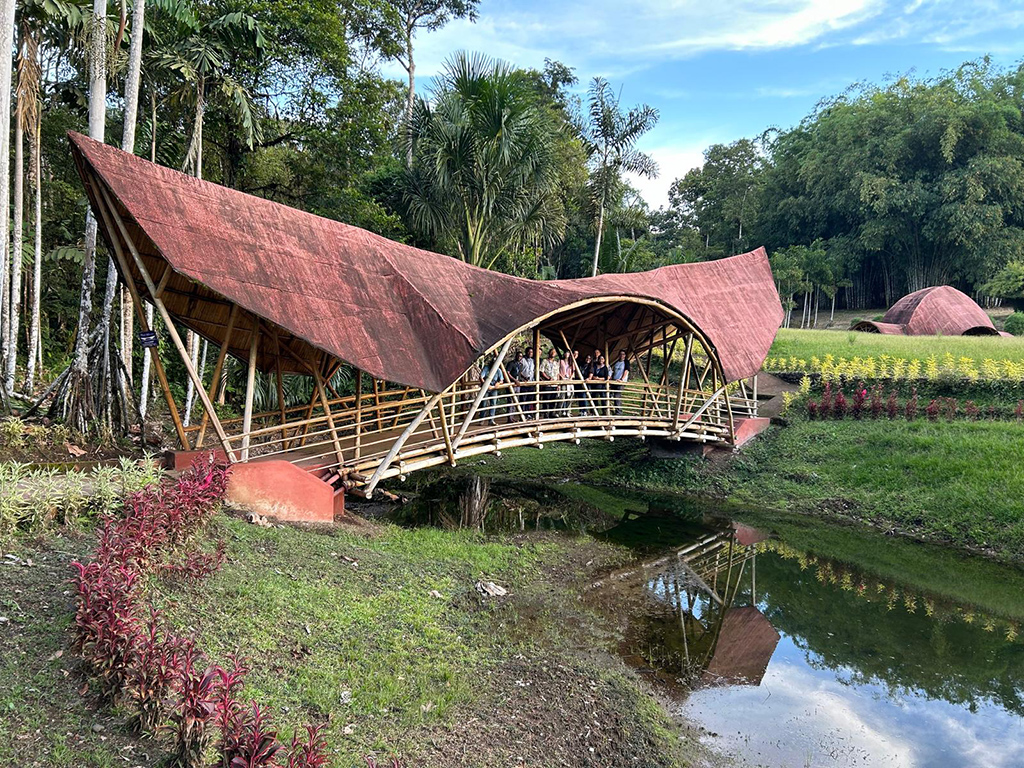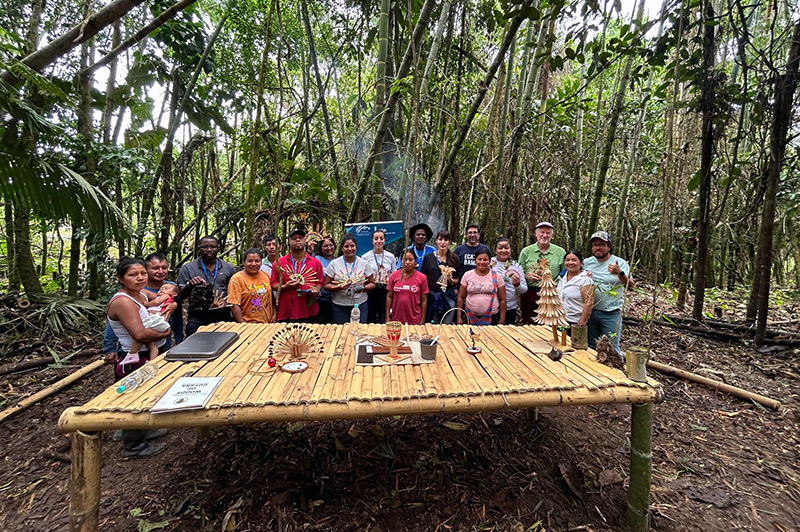A peer-to-peer learning exchange in Ecuador has introduced the economic and environmental potential of bamboo to representatives
from the Guyana Forestry Commission, as well as a representative from the Maria Elizabeth/Three Friends Small Loggers Association - an association of several forest dependent communities in Region Ten, Guyana.
This initiative, supported by the European Union (EU) through the Euroclima programme, aligns with Guyana’s national goal to restore 200,000 hectares of forest as outlined in its Low Carbon Development Strategy 2030. The project aims to assess the feasibility of using native bamboo species to rehabilitate mined-out areas and explore bamboo-based economic opportunities.
Expertise France, the implementing agency for this initiative, collaborated with the International Bamboo and Rattan Organization (INBAR) through its Regional Office for Latin America and the Caribbean to organize the study tour. The Guyanese delegation included the Deputy Commissioner of the Guyana Forestry Commission, Mr. Rawle Lewis, and other key personnel, accompanied by the Forest and Climate Change Programme Manager from the EU Delegation in Guyana, Ms. Layla El Khadraoui.
During the visit, the delegation explored Ecuador’s well-developed bamboo sector, gaining valuable insights into the ecological, economic and governance aspects of bamboo initiatives. At the Pindo Mirador Biological Center and the Guadua Park “El Pigual” in the Pastaza region, the delegation observed the environmental benefits of bamboo plantations, including soil stabilization, water retention, and carbon sequestration.
Meetings with women’s associations Amukina at the Napo Province and private sector stakeholders like Allpa Bambu in the Northwest of Quito highlighted bamboo’s economic versatility. From construction materials and handicrafts to sustainable charcoal and replacements for single-use plastics, bamboo’s applications are extensive and can represent a sustainable alternative for local economies.
With over 1,600 bamboo species worldwide, the delegation learned that selecting the right native species and understanding its optimal applications are essential first steps in bamboo-related projects. Additionally, Ecuador’s experiences underscored how bamboo’s robust rhizome system makes it a valuable tool for restoring degraded lands and improving soil health.
Policy discussions with Ecuador’s Undersecretary of the Ministry of Environment, Water, and Ecological Transition, Ms. Glenda Ortega, emphasized the need for regulatory updates to encourage bamboo production. As bamboo is classified as a grass, revising legislation is crucial to facilitate bamboo product processing and attract private investment.
The exchange gave the delegation a better understanding of bamboo’s potential and offered valuable ideas for replicating Ecuador’s successes in Guyana.
The study tour also importantly fostered South-South Cooperation by capturing perspectives and lessons learned from not only Ecuador but other valuable Latin America partners: Colombia and Peru via Webinar. This experience has opened the door for continuous regional cooperation on Bamboo among these countries with EU support.
As bamboo proves to be a valuable resource for both restoration and economic development, this initiative reflects the EU’s commitment to fostering sustainable solutions through international collaboration.
About Euroclima
Euroclima is the regional cooperation program that promotes the strategic partnership between the European Union and Latin America and the Caribbean, based on shared values and the commitment to jointly address climate change and biodiversity loss. A platform for the exchange of ideas and experiences between countries in the region and with the European Union.
It is co-financed by the European Union and by the federal government of Germany through the Federal Ministry for Economic Cooperation and Development (BMZ). It seeks to contribute to the sustainable, resilient and inclusive transition through climate mitigation and adaptation efforts, including the protection, restoration, conservation of biological diversity and the promotion of the circular economy.
Euroclima is inserted within the renewed Agenda of Relations between the EU and Latin America and the Caribbean and is part of the Global Gateway strategy that promotes investments and financing in relevant sectors, as well as the use of other instruments of the EU and its Member States to achieve more sustainable, fair and interconnected societies.
It is implemented under the Team Europe Spirit, through the synergistic work of eight agencies: Spanish Agency for International Development Cooperation (AECID), AFD Group: French Development Agency (AFD)/ Expertise France (EF), Economic Commission for Latin America and the Caribbean (ECLAC), International and Ibero-American Foundation for Administration and Public Policies (FIIAPP), Deutsche Gesellschaft für Internationale Zusammenarbeit (GIZ) GmbH, the UN Environment Program (UNEP) and the United Nations Program United Nations Development Program (UNDP).

